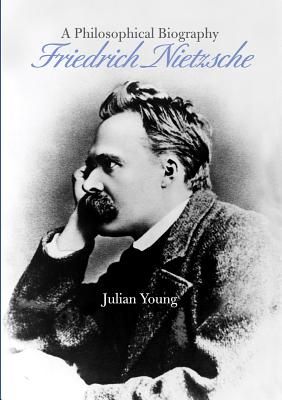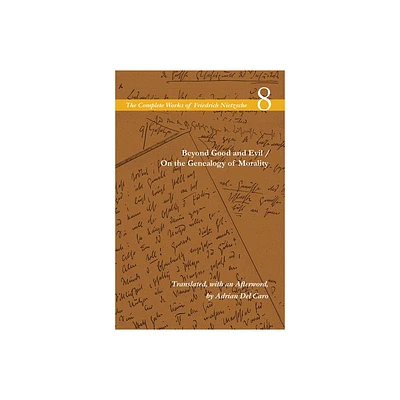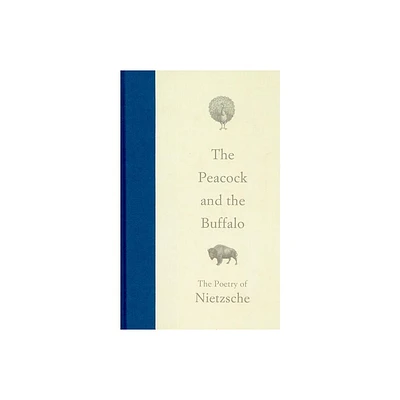Home
Feminist Interpretations of Friedrich Nietzsche / Edition 1
Loading Inventory...
Barnes and Noble
Feminist Interpretations of Friedrich Nietzsche / Edition 1
Current price: $47.95


Barnes and Noble
Feminist Interpretations of Friedrich Nietzsche / Edition 1
Current price: $47.95
Loading Inventory...
Size: OS
*Product Information may vary - to confirm product availability, pricing, and additional information please contact Barnes and Noble
Nietzsche has the reputation of being a virulent misogynist, so why are feminists interested in his philosophy? The essays in this volume provide answers to this question from a variety of feminist perspectives.
The organization of the volume into two sets of essays, "Nietzsche's Use of Woman" and "Feminists' Use of Nietzsche," reflects the two general approaches taken to the issue of Nietzsche and woman. First, many debates have focused on how to interpret Nietzsche's remarks about women and femininity. Are all of Nietzsche's comments to be read literally, or is he being ironic, perhaps even parodying and subverting stereotypes about women? Second, is his philosophy useful to feminist theory? Can we separate his philosophy from his seemingly derogatory remarks about women? Can feminists use his criticisms of truth, objectivity, reason, and the autonomous subject to challenge the exclusion of women from the history of philosophy? Some view his critiques of dualism and essentialism as well as his perspectivism and social constructivism as adumbrating later feminist positions. Others find troubling his privileging of masculinity and paradigms of domination; they see Nietzsche's sexual dualism as countering otherwise transgressive themes.
Contributors are Debra Bergoffen, Maudmarie Clark, Daniel Conway, Jacques Derrida, Jean Graybeal, Kathleen Higgins, Luce Irigaray, Sarah Kofman, Tamsin Lorraine, Kelly Oliver, David Owen, Marilyn Pearsall, Ofelia Schutte, Linda Singer, Lynne Tirrell, and Kathleen Wininger.
The organization of the volume into two sets of essays, "Nietzsche's Use of Woman" and "Feminists' Use of Nietzsche," reflects the two general approaches taken to the issue of Nietzsche and woman. First, many debates have focused on how to interpret Nietzsche's remarks about women and femininity. Are all of Nietzsche's comments to be read literally, or is he being ironic, perhaps even parodying and subverting stereotypes about women? Second, is his philosophy useful to feminist theory? Can we separate his philosophy from his seemingly derogatory remarks about women? Can feminists use his criticisms of truth, objectivity, reason, and the autonomous subject to challenge the exclusion of women from the history of philosophy? Some view his critiques of dualism and essentialism as well as his perspectivism and social constructivism as adumbrating later feminist positions. Others find troubling his privileging of masculinity and paradigms of domination; they see Nietzsche's sexual dualism as countering otherwise transgressive themes.
Contributors are Debra Bergoffen, Maudmarie Clark, Daniel Conway, Jacques Derrida, Jean Graybeal, Kathleen Higgins, Luce Irigaray, Sarah Kofman, Tamsin Lorraine, Kelly Oliver, David Owen, Marilyn Pearsall, Ofelia Schutte, Linda Singer, Lynne Tirrell, and Kathleen Wininger.


















